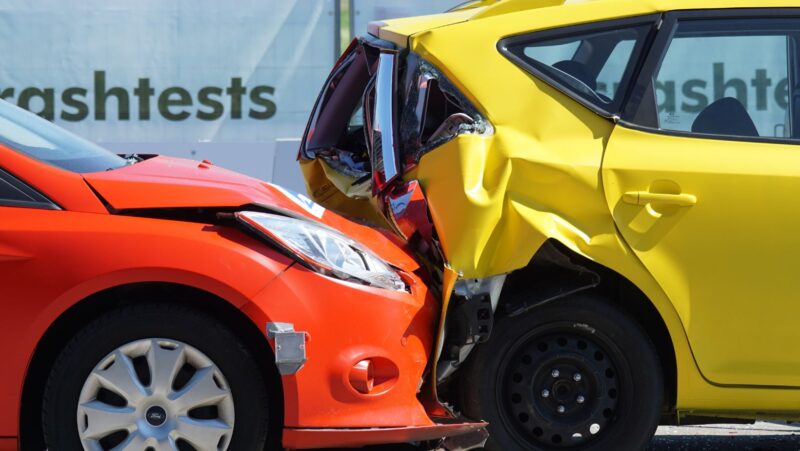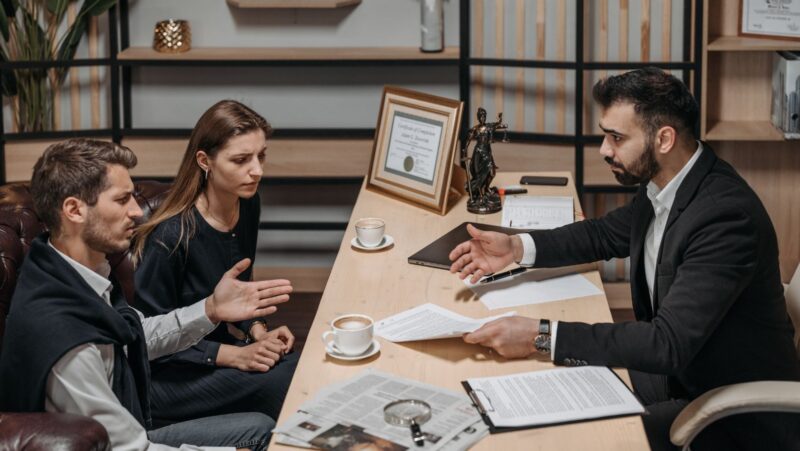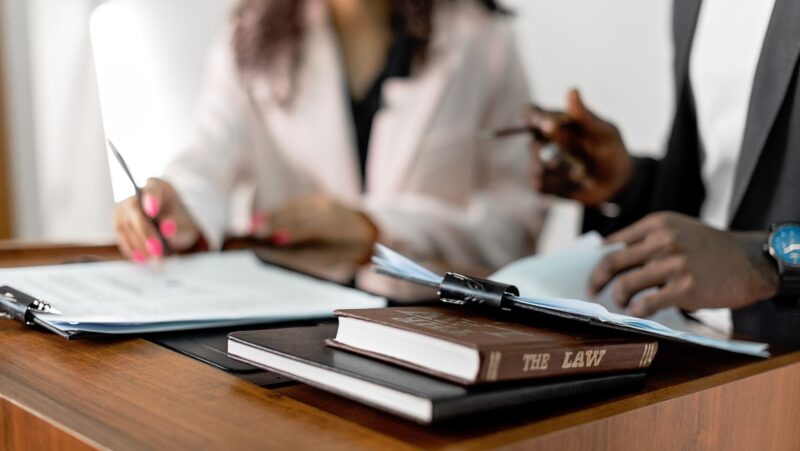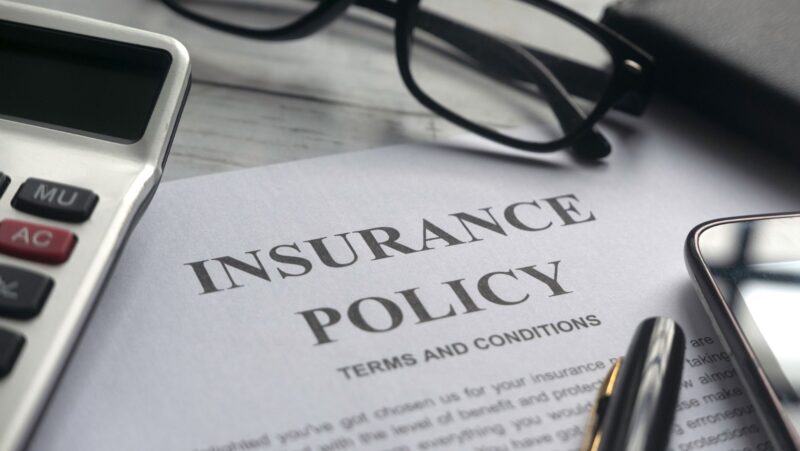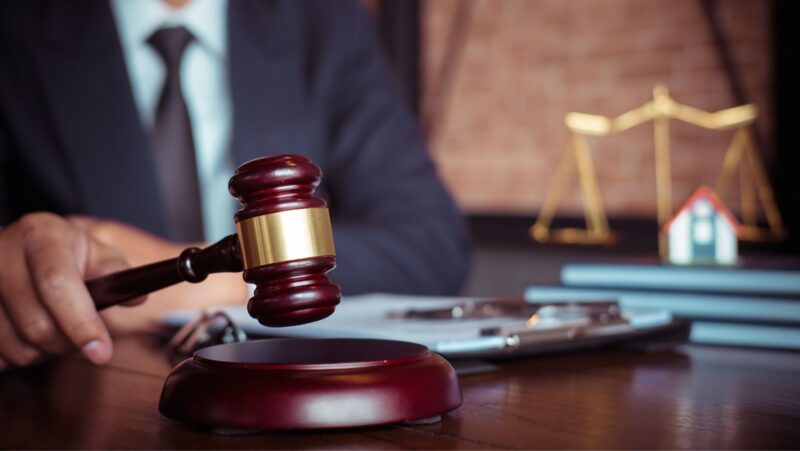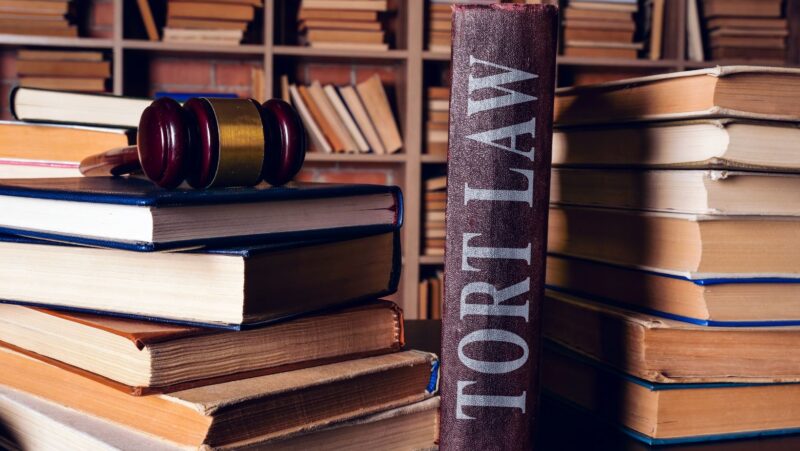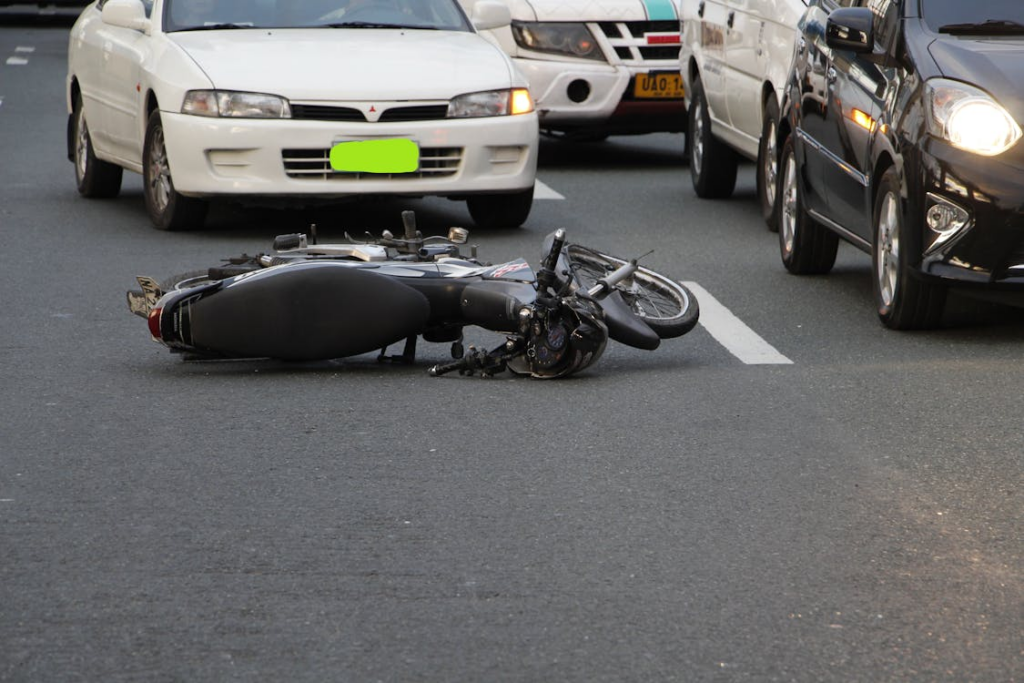
Taking prompt, informed, and determined steps is particularly crucial to shield and protect your rights and ascertain your well-being, especially after a motorcycle accident.
Here’s a helpful guide so you can be sure the lines and ways you cross are safe, legally and physically, and whether you’re emotionally, mentally, or bodily harmed.
Stay Calm: Assess the Scene
First and foremost, try to stay calm no matter how confused you are. It’s true that emotions can run high after an accident, but taking a deep breath and assessing your situation will help you better than being in panic mode. Endeavor to check yourself and any passengers (especially if you are riding with someone) for injuries.
Your safety and health need to come first. If you’re able, move to a safer area to avoid further accidents. But don’t stray too far; the accident scene needs to be preserved, and your presence is a part of it, especially in the police report.
As soon as you can, call 911. Reporting the incident can make sure that police and medical professionals are on their way to assist all of you. Be honest and factual in your account, and avoid admitting fault, as there’s a lot about legal liability that can only be untangled by investigations.
Gather Evidence Like a Detective: The Scene and its Surrounding Area
If you’re uninjured and it’s safe to do so, start gathering evidence; the more concrete, the better. Just think of yourself as a detective piecing together what happened.
Take photos of your accident scene, damage to the motorcycle, skid marks, road conditions, and any injuries. Collect and secure contact information from witnesses who can provide statements later.
Exchange Information: Opposing Party’s Details
Make sure to exchange information with the other party or vehicle owner involved in your accident.
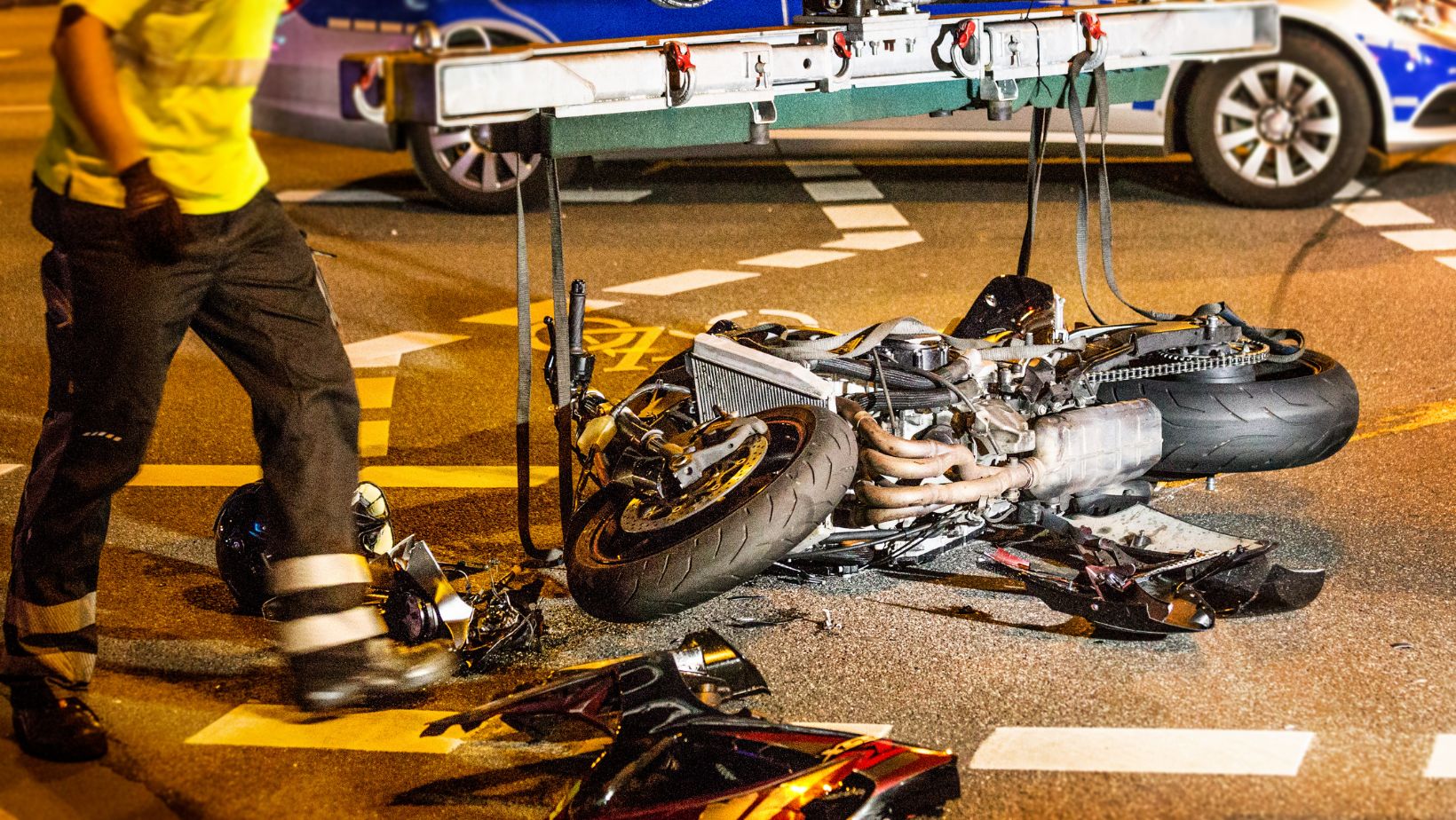
It’s a way of making sure everyone will negotiate fairly and squarely; you can get their name, contact details, insurance information, and details about their vehicle. Just keep things respectful and professional at this stage to help you prevent unnecessary conflict.
Seek Medical Attention: It’s Not “Ok” Even if You’re Okay
Even if you’re certain and feel okay, getting a medical check-up is still wiser. Some injuries, like concussions or internal bleeding, might not be immediately apparent and may have long-term effects. Having a medical report is like keeping an ace up your sleeve, especially if the other party or the insurer contests some of your claims.
Notify Your Insurance Company: Establish Your Claim
Reach out to your insurance company to report your accident. You may need to provide them with all the nitty-gritty details of the incident; it’s as if you’re signaling them to start processing your motorcycle accident claim.
Don’t Sign Anything Yet: Rights Over the Offers
You might receive offers or settlement proposals from the other party’s insurance company or from the other driver.
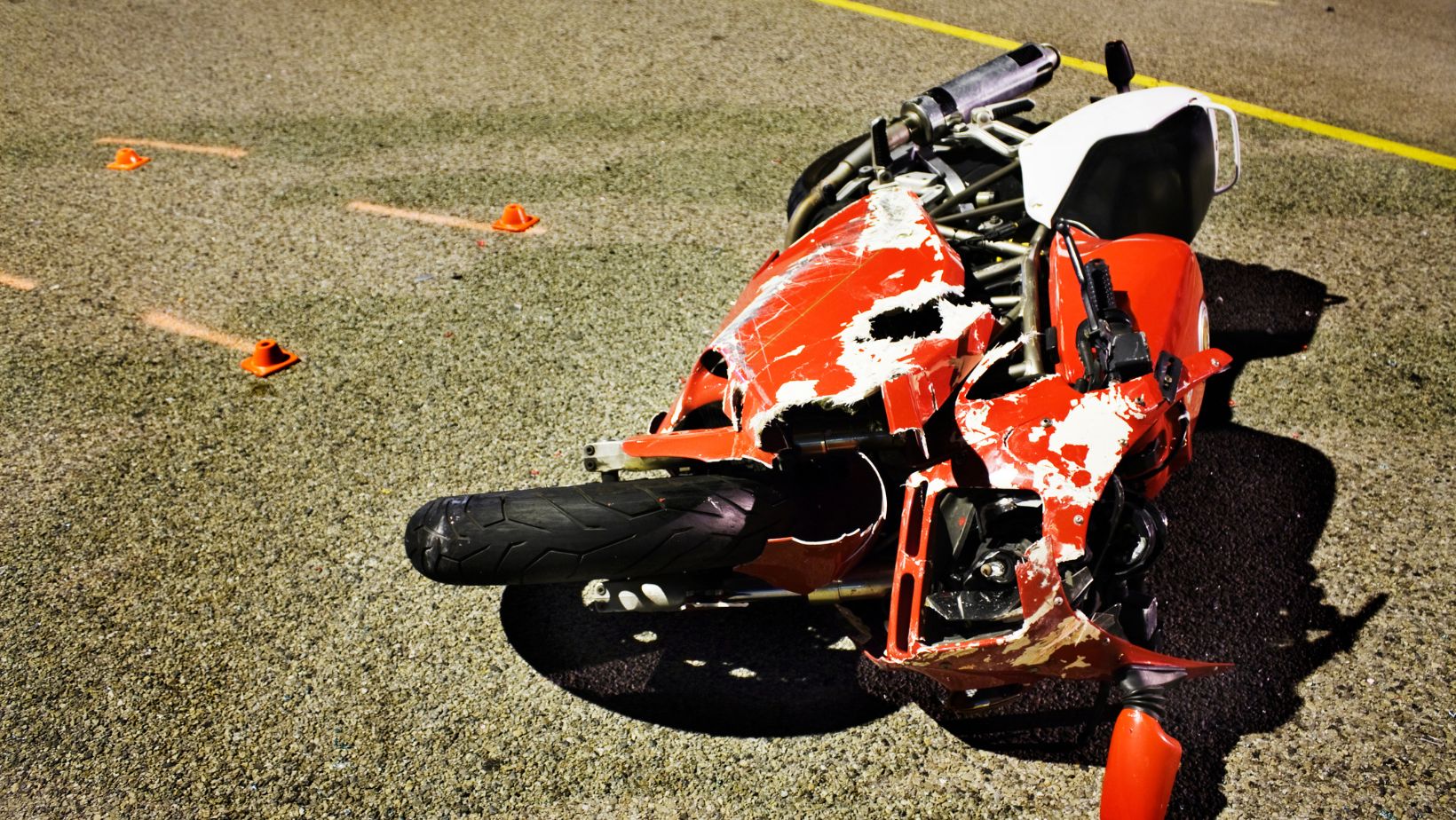
Don’t rush into signing anything before you’ve fully understood your rights and the extent of your damages or losses.
Consult a Legal Professional: Seek a Personal Injury Lawyer
Consider speaking with a personal injury lawyer, especially one who handles motorbike accident cases like yours. Their professionalism and expertise can be particularly handy if you’re facing substantial medical bills or the accident was not your fault at all.
Your attorney can help shield your rights and other interests, walk through insurance claims, and potentially recover compensation for a number of damages.
Maintain Detailed Records: Keeping Documents and Evidence Handy
Finally, keep a detailed record of everything related to your accident even after your case has been decided; they’d be extra useful should you encounter other issues later. This includes documents like medical bills, repair estimates, correspondence with insurance companies, and notes from consultations with professionals, including your lawyer’s communications and billings.
Conclusion
There may be a lot of steps to take after your motorcycle accident, but taking note of these steps can help you manage the “to dos” of your accident effectively, and at the same time, they’re more about securing your rights and setting the groundwork for a smoother resolution.


